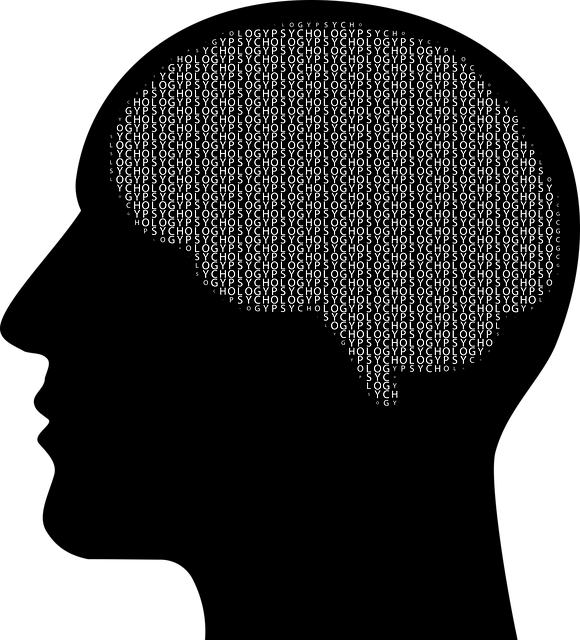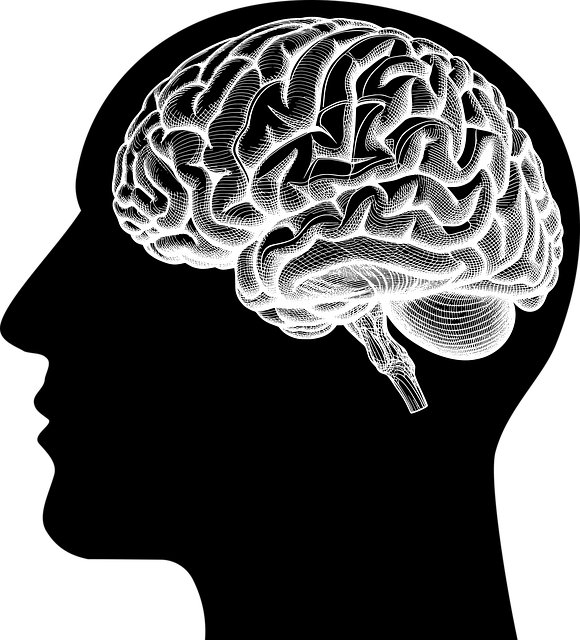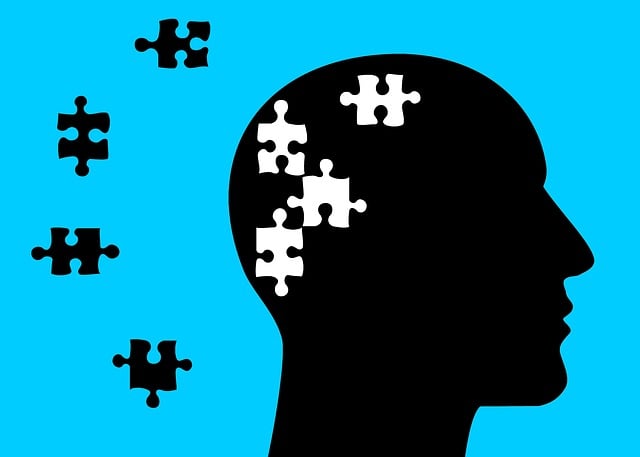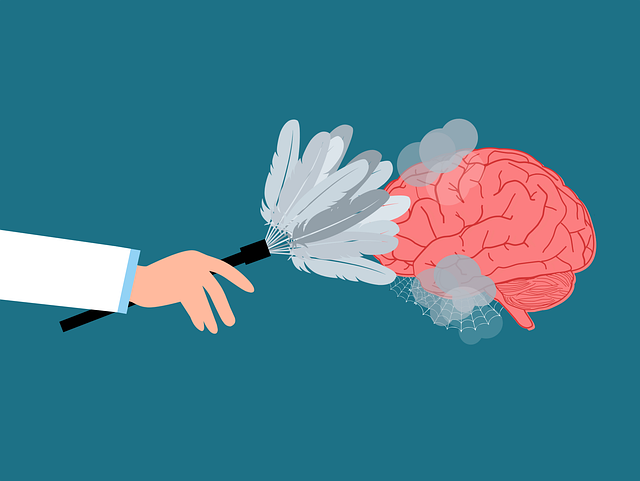Highlands Ranch faces unique challenges in mental health diagnosis within blended families due to complex dynamics and diverse experiences. To address this, they've implemented Mental Wellness Coaching Programs and Community Outreach, focusing on early intervention and support through initiatives like Blended Families Therapy. These efforts promote open dialogue, educate communities, and make resources more accessible, aiming to improve diagnosis accuracy and enhance mental wellness. Advanced assessment tools, data-driven insights, and diverse therapeutic techniques tailored to individual needs are integrated at Highlands Ranch Blended Families Therapy, ensuring personalized care for a wide range of mental health concerns. This holistic approach, including support groups and a podcast series, fosters accurate diagnoses and prevents burnout, driving positive shifts in mental health awareness. Future prospects include AI-assisted evaluations for earlier interventions and precise diagnoses, combined with evidence-based practices training for healthcare professionals.
In Highlands Ranch, mental health diagnosis accuracy faces unique challenges, particularly within blended families. This article delves into the current landscape, exploring complexities that impact effective identification of mental illness. We analyze specific hurdles in diverse family structures and highlight innovative approaches to enhance diagnosis accuracy. Therapy and support groups play a pivotal role in this process. Additionally, we discuss future directions for continuous improvement, emphasizing the importance of tailored strategies for accurate mental health assessments in Highlands Ranch communities, including blended families seeking therapy.
- Understanding Mental Health Diagnosis: The Current Landscape in Highlands Ranch
- Challenges in Diagnosing Mental Illness: A Closer Look at Blended Families
- Innovative Approaches to Enhance Diagnosis Accuracy
- The Role of Therapy and Support Groups in Highlands Ranch
- Future Directions: Continuous Improvement for Accurate Diagnosis
Understanding Mental Health Diagnosis: The Current Landscape in Highlands Ranch

In Highlands Ranch, understanding mental health diagnosis is a complex and evolving landscape, particularly within blended families seeking Therapy. With increasing awareness and advancements in research, healthcare professionals are continually striving for greater accuracy and efficacy in diagnosing mental illnesses. However, navigating the intricate web of symptoms, co-occurring disorders, and unique family dynamics can pose significant challenges.
Highlands Ranch’s growing community of Mental Wellness Coaching Programs and Community Outreach Program Implementations reflects a concerted effort to address these complexities. These initiatives aim to enhance early intervention and support for individuals experiencing depression or other mental health concerns, especially within diverse family structures. By fostering open dialogue, educating communities, and promoting accessible resources like blended families Therapy, Highlands Ranch is taking proactive steps towards improving diagnosis accuracy and overall mental wellness.
Challenges in Diagnosing Mental Illness: A Closer Look at Blended Families

Diagnosing mental illness within blended families presents unique challenges that can impact the accuracy of assessments. Blended families, often comprising biological and step-parents, as well as step-siblings, bring a complex dynamic to therapy. Each family member’s experiences and relationships may differ significantly, influencing their emotional health and behaviors. This diversity can make it difficult for therapists in Highlands Ranch to pinpoint specific mental health issues, especially when trying to understand the interconnections between them.
Highlands Ranch blended families often face complex situations, including previous traumas or crisis intervention guidance needs, which can mimic or mask signs of mental illness. Effective therapy requires addressing these unique circumstances and providing trauma support services tailored to each family member’s experiences. By fostering open communication and promoting self-esteem improvement, therapists can create a safer space for all involved, leading to more accurate diagnoses and comprehensive treatment plans.
Innovative Approaches to Enhance Diagnosis Accuracy

In recent years, efforts to enhance mental illness diagnosis accuracy have seen innovative approaches emerging from the forefront of therapeutic practices. One such example is the integration of advanced assessment tools and technology, which go beyond traditional methods to capture nuanced symptoms and behaviors. At Highlands Ranch Blended Families Therapy, we recognize that mental health diagnoses are complex and require a multifaceted understanding of an individual’s psychological landscape. By combining clinical expertise with data-driven insights, therapists can make more precise evaluations, tailoring treatments to specific needs.
Furthermore, therapeutic interventions like Stress Reduction Methods, Social Skills Training, and Self-Esteem Improvement play a pivotal role in enhancing diagnosis accuracy. These programs not only equip individuals with coping strategies but also provide valuable feedback to mental health professionals. By observing clients’ progress through structured training, therapists gain deeper insights into their patients’ experiences, leading to more accurate assessments and personalized care. This holistic approach ensures that Highlands Ranch Blended Families Therapy remains at the forefront of improving diagnosis accuracy for a diverse range of mental health concerns.
The Role of Therapy and Support Groups in Highlands Ranch

In Highlands Ranch, a unique approach to mental illness diagnosis and treatment is gaining traction through blended families therapy and support groups. These initiatives play a pivotal role in enhancing mental wellness among residents, particularly those facing complex challenges. The therapy sessions offer a safe space for individuals and families to explore and navigate their emotional journeys, fostering open communication and understanding. By integrating various therapeutic techniques, professionals cater to diverse needs, ensuring tailored interventions that address specific mental health concerns.
Support groups within the community further strengthen this ecosystem. These groups provide a sense of belonging and camaraderie, where members share experiences, offer mutual support, and gain valuable insights from one another. The Mental Wellness Podcast Series Production has also contributed significantly, making expert advice and personal narratives accessible to a wider audience. In light of these efforts, Highlands Ranch is witnessing a positive shift in mental health awareness, with increased accessibility to resources that promote not just diagnosis accuracy but also holistic improvement in mental wellness, even for those facing burnout prevention challenges.
Future Directions: Continuous Improvement for Accurate Diagnosis

As technology advances and our understanding of mental health expands, the future of diagnosis looks promising for accuracy and precision. Continuous improvement in this area is essential, especially for diverse populations like Highlands Ranch blended families. One key direction is integrating artificial intelligence (AI) tools that can analyze vast amounts of data to identify patterns and support clinical decisions. AI-assisted evaluations could lead to earlier and more precise diagnoses, benefiting individuals seeking therapy at Highlands Ranch Blended Families Therapy.
Additionally, ongoing training and education for mental health professionals on the latest research and techniques are vital. Incorporating evidence-based practices, such as stress reduction methods and empathy building strategies, can enhance the emotional healing processes. By fostering a culture of continuous learning, healthcare providers can ensure they deliver the most effective and accurate diagnoses, ultimately improving patient outcomes in Highland Ranch and beyond.
In conclusion, improving mental illness diagnosis accuracy is an ongoing process that requires a multifaceted approach. By understanding the unique challenges faced by communities like Highlands Ranch and its blended families, implementing innovative strategies, and leveraging therapy and support groups, significant strides can be made towards more precise diagnoses. Continuous improvement in this area is paramount to ensuring those in need of mental health services receive the appropriate care in Highlands Ranch and beyond.













